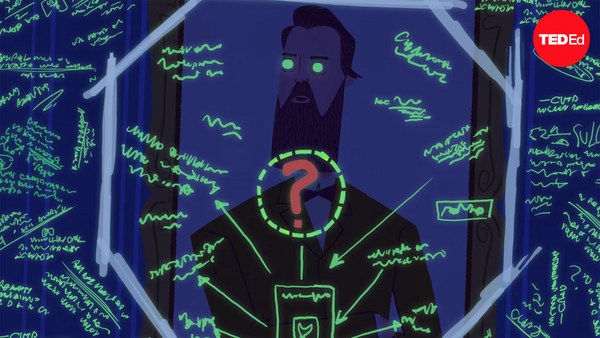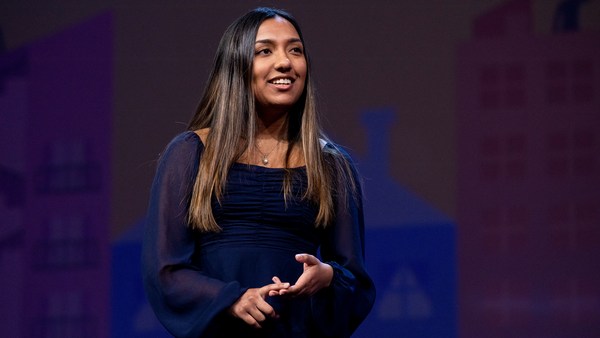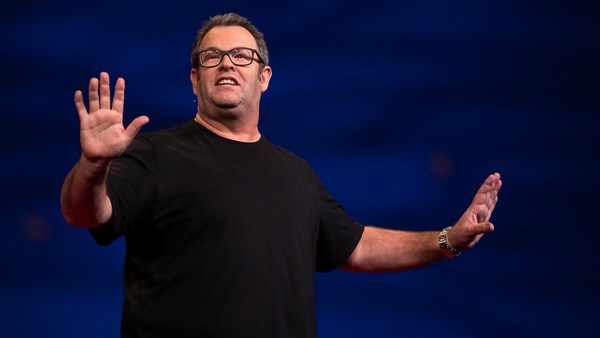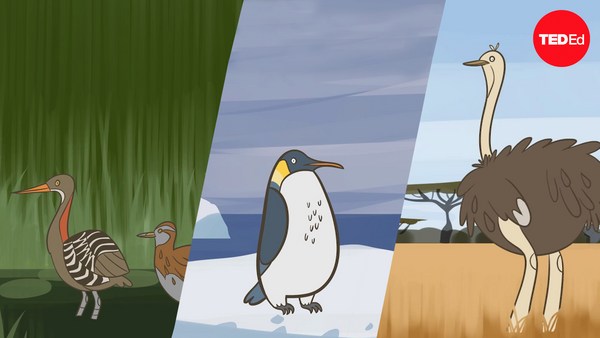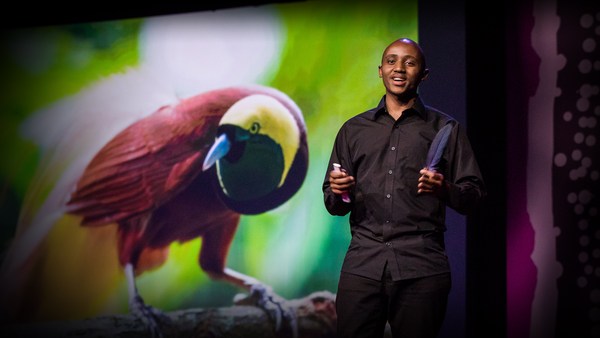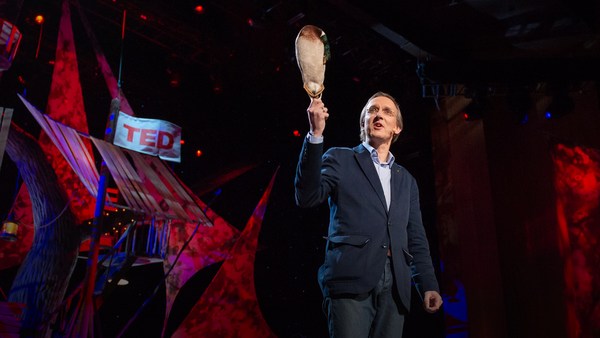Hi, I'm Peter. And six years ago, I received information that changed the course of the rest of my life.
From 1969 through 2001, the US government murdered over 12 billion birds in the American skies. They did this using poisonous toxins dropped from airplanes that was contagious and murdered all of the birds over the course of about 40 years. Now, I know this is not the public understanding of this and may sound absurd, but please just bear with me and keep an open mind and just be respectful, please, as I share this information with you.
I know a lot of you may be wondering why would the government kill 12 billion birds? It seems like an awful lot of trouble for a government to go through. The reason is as devastating as it is simple. For each bird the government killed, they replaced it with a surveillance drone replica in disguise designed to spy on the American people.
Now ... Some may say, if you're the government, at least, that this is a worthy sacrifice, these 12 billion lives, for the safety of the people, right? I don't know about that, it seems like a pretty serious limit on our freedom, wouldn't you agree?
The proof that birds are robots is all around us, if you start looking. For starters, birds charge their batteries on power lines --
(Laughter)
So they can refuel up high and they can watch the civilians, you know. They also track civilians using a liquid tracking device.
(Laughter)
You ever wonder why birds poop on your car? Do you need more evidence? Really, I can go all day up here. Who here has seen a baby pigeon? You haven't, have you? It's weird. There's all these adult pigeons where are all the babies? They come out of the factory as adults, so ...
(Laughter)
There's no organic growth, you know. It's a smoking gun.
Over the years, as I began putting this information together, I began realizing the extent of all this. And there were times I wished I never even learned this. My life would be so much easier. You know, I remember before I knew this information, I was happier, my steps were lighter, you know. But I always come back to this. It is my moral obligation as one of the few privileged enough to know this, to share it with you, the blind sheep, you know.
(Laughter)
And that's what I've been doing for years now. I'm a part of a movement called Birds Aren't Real. And in 2021, I was promoted to public information officer for the movement. It's the honor of my life. I had one job. Oh, thank you, thank you.
(Applause)
Thank you.
My one job was to deprogram the public from the bird lie. And deprogram is a very specific word because you all are programmed. You know that, right? We live in a pro-bird civilization drenched in propaganda. For instance, every state has a state bird, the national mascot is a bald eagle, presidents don't talk, they tweet, then the tweets are covered on the bird-logo media. Once I knew this, my first order of business was to get the information out to the American people, get off the internet into the real world. So that's what I did. I bought a van, covered it in decals with facts. I wanted to turn the highway into an information highway, awaken the people. I went city to city, holding rallies, meeting up with our thousands of supporters, growing by the day. And I was putting up billboards wherever we went, sharing our simple but powerful message. Look how beautiful it is. Now, the government,
(Laughter)
the government did take note of what we were doing and they sent some intimidators to try and deter us from our mission. You can see them right there.
(Laughter)
But we did not fold. We kept on going. We started holding rallies at some of the most evil pro-bird corporations in the world, starting with Twitter, where we brought hundreds out to protest their pro-bird logo. Months later, we brought 500 people out to CNN headquarters to demand fairer coverage for bird truthers on air. Then just last year, we brought 2,000 people out to Washington Square in New York City to demand that the mayor shut down every pigeon in the city.
(Laughter)
Here's what that looked like.
(Crowd shouting) Birds aren't real! Birds aren't real! Birds aren't real! Birds aren't real!
(Laughter)
Can't even tell you how that felt. I took that video standing on the top of the van, megaphone in hand, knowing we were awakening a country that needs it so badly. I can't think of anything more beautiful.
OK, let me start this talk over. I do not actually believe that birds are robots. And everyone else in this picture is also in on the bit. This is a character that I played for four years. The leader of a fake movement with fake evidence and a fake history. Our goal was to convince the public that our satirical movement was a real one. And see if the media would believe what we were saying. To do this, I played this character that I just showed you. We held rallies, put up billboards. We even sent the media a lot of fake evidence. We hired an old actor to pose as an ex-CIA agent confessing to his crimes. We sent them a historic email leak called "Poultry Gate" that came out of the Pentagon,
(Laughter)
where we forged hundreds of fake emails exposing elites and government officials in the bird drone surveillance plot. It didn't take much to convince the media. After just one summer holding rallies like this, it became nationally syndicated news on tons of local news stations that we were a real movement that had been around for 50 years. And there was a resurgence happening where it was coming back and there was a radical new leader, myself, bringing the movement back as the rise of conspiracy theories swept the nation.
At this point, I'm sitting on my couch, watching the media report on my fake movement as a real one and figure it is probably time to come out of character. One, because we'd accomplished what we came there to do. But also, I didn't want this to snowball in anything that was never supposed to. So in 2021, I broke character, revealed the movement was a farce on the front page of The New York Times. And I was very proud, as you can see.
Allow me to reintroduce myself one more time. Hi, I'm Peter. Can you say, "Hi, Peter?"
(Audience) Hi, Peter.
Hey. I'd like to tell you a little bit about myself. I grew up in Arkansas in Little Rock, where I was home-schooled on the outskirts of town. The community that I grew up with was hyper conservative and religious, and almost everyone that I knew believed in some form of conspiracy theory, whether it was that Obama was the Antichrist or that there are microchips in the vaccines. During my entire life, I always felt like I was on the fringes of normal society. So, as you can imagine, when it became time for me to play a character, the conspiracy theorist was a pretty easy one for me to tap into. During the years in character, I used the same cadence, logic and arguments as those I grew up around, just with a different theory swapped in. I was really dedicated to playing this character as convincingly as I could, as method as possible. So I spent days, sometimes, in character, a lot of time out in public with the van there, just talking with strangers. It led to hundreds of interactions with strangers who thought that I was a real conspiracy theorist. I'd often be out there, cowboy hat on, handing out fliers that said things like, "If it flies, it's spies."
(Laughter)
We had another flyer that said, "Birdwatching goes both ways."
(Laughter)
And during these times, as I'm handing out flyers and talking with people, there were hundreds, maybe thousands of instances over the years where strangers would approach me. You know, they'd see me in public and I'd see them notice me. And walk up to me with complete disdain on their face. They thought that I was a real conspiracy theorist. And time and time again, they'd come up to me, look me right in the eyes, just as close as I am to you right here, and they would tell me how stupid I am. They'd tell me I was uneducated, that I was crazy. That I was the problem with this country. When this happens, I didn't feel the emotions of the character that I thought I would. My out-of-character self may interpret these interactions as a funny response to someone that fell for the comedy project, but instead I felt the emotions of the character. I felt emboldened and I felt sad and angry. Like they didn't even take the time to know me. They instantly condemned me, judged me and othered me. I'd found myself on the opposite side of this equation that I'd grown up around, the normal and the fringe. And in those moments when those people were talking to me, they could not have been more ineffective at what I would assume they really want. Less conspiracy theorists in the world. These experiences, hundreds of them over the years, watching how people interact with those on the fringes of our society gave me an entirely new perspective on our approach to conspiracy theorists, whether it's how we frame them in the conventional media, to how we deal with those in our own lives. If our goal is to live in a shared reality with our neighbors, what if our current approach isn't bringing us any closer to that? What if by talking to conspiracy theorists like they're ignorant and stupid, we're actually pushing them farther away from the truth that we want them to see? Because what happens when someone tells you that you're stupid, you're all wrong, you're the problem? You'll feel judged and dismissed. And most importantly, you’ll feel othered, which may lead you to look for safety in those who are like-minded to do what they have been doing for you. Affirm your selfhood, give you a sense of identity, belonging. These are some of the most basic human desires.
We have to consider that conspiracy theorists are not just joining these groups for no reason. They're getting rewards out of these, things that we are all looking for, a sense of purpose, community.
I grew up with the internet and during my time with this project, especially out of character, people have talked to me about the misinformation age and this, you know, terrifying problem of online echo chambers and conspiracy theorists. But I want to remind us that there are humans behind a lot of these screens. It's not just numbers. Everyone’s unique experience influences their own narrative about the world, and there's no blueprint for how to deal with this yet. But I do not think that online echo chambers of conspiracy theorists are this inevitable symptom of life online. The internet is about 30 years old and things are changing quickly, and I think it'll be very important that we develop new solutions for these new problems on a fundamental level.
What if by addressing belief before belonging, we're starting the conversation at the wrong place? Instead of sitting in collective bewilderment and frustration about how these people could believe these things, these crazies, what if we first looked under the hood and thought about what made them vulnerable to this information in the first place? What might they be getting out of this that they're not getting in their everyday lives? How much does it have to do with a different truth, or how much does it have to do with the community that that truth brings?
We need to think about people's circumstances and reference points, to see them as fellow human beings who want to believe in something and want to belong, just like all of us do in this room. Because if we continue with our current approach of arguing on the level of belief, it's not going to get us anywhere. We're going to end up with more echo chambers, more disinformation and more polarization.
Instead, we can do the harder work of looking into what is fueling the need for an alternate truth. Not only would this lend us more empathy for those who think differently than us, but I really think this might be the only actually productive means, productive means, of moving toward the shared reality that we all want to live in. Let's direct our energy toward the crisis of belonging. And then maybe we will understand the crisis of belief.
Before I go, I'll leave with one more word. Just don’t forget: if it flies, it's spies.
Thank you.
(Cheers and applause)
